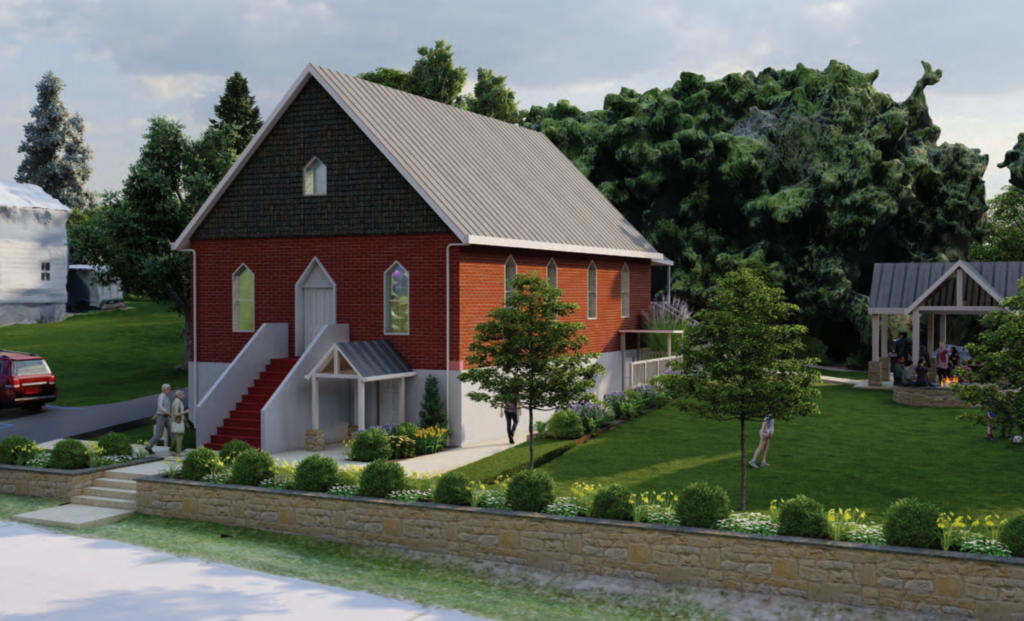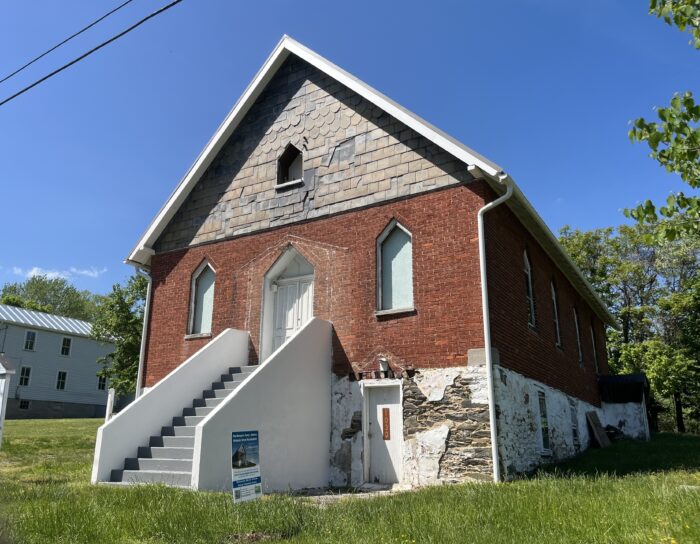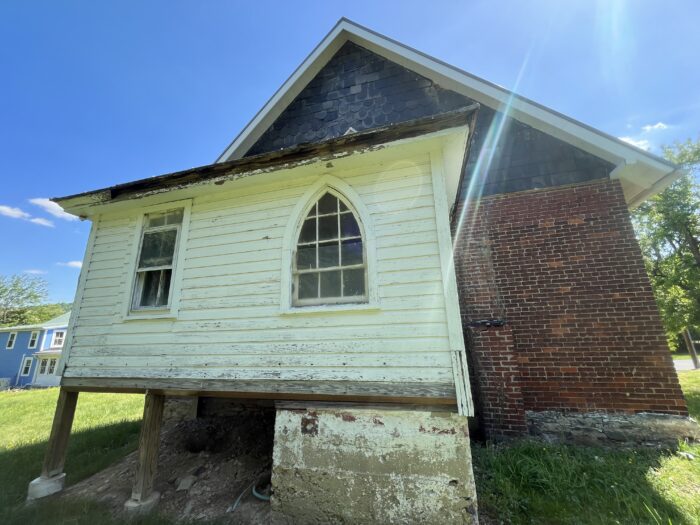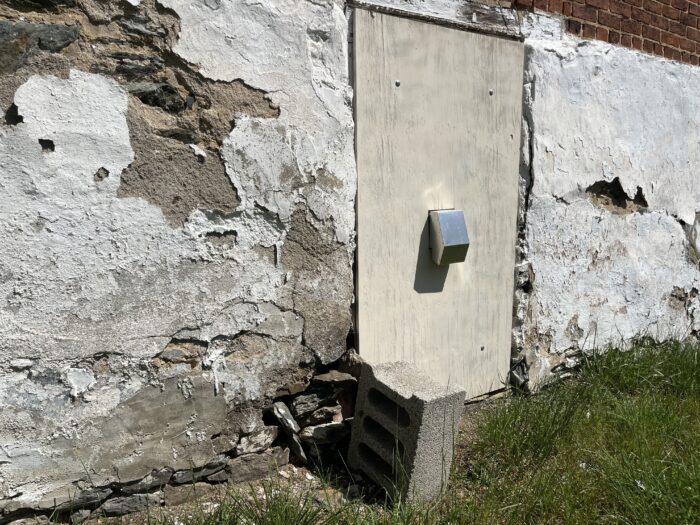Jehovah’s Witnesses Convention Returning To Huntington
A three-day convention of Jehovah’s Witnesses promises to deliver only good news.
Continue Reading Take Me to More News
Harpers Ferry is a hotspot for Black history in West Virginia. The town was home to an 1859 abolitionist uprising, a 1905 conference on Black civil rights and a historically Black college that operated for nearly a century.
For many residents, a first step toward preserving Harpers Ferry’s Black history is rehabilitating and preserving sites of historic significance.
When community members noticed a traditionally Black Baptist church in town fall into disrepair, they rallied behind an effort to restore the building to its former glory.
Now, a local preservation nonprofit called the Harpers Ferry-Bolivar Historic Town Foundation has secured a $100,000 grant to rehabilitate the church.
Reporter Jack Walker spoke with the organization’s incoming chair Lynn Pechuekonis about where the project is today, and the future of First Zion Baptist Church.
This interview has been edited for length and clarity.

Walker: To begin, could you tell me what First Zion Baptist Church is, and why it’s important to Harpers Ferry history?
Pechuekonis: Harpers Ferry harbored a very vibrant Black community between 1870 and 1970, partially because of Storer College. That brought education to Black families here. It also helped with job training. It also engendered a summer resort industry, which ended up nurturing the Hill Top Hotel, which was a Black-run hotel from 1890 to 1926. It was Black-owned. So there was a large population, comparatively, of Black people in Harpers Ferry — Black families who could own homes. They were encouraged to own homes here. And so they wanted to worship here as well. There were actually altogether four African American churches in Harpers Ferry at one time. Two of those were on West Ridge Street, and First Zion Church was built in 1894 by some of the very early Black families who came to live in our town.
Walker: I know that you and some other local community members have rallied around First Zion Baptist Church and preserving the historic building for future generations. How did that project come to be?
Pechuekonis: So, several years ago, some folks in town, both in Bolivar and Harpers Ferry, were concerned about the fact that we had two former African American churches actually on the same street, just about within three lots of each other, that had been abandoned, and were just really deteriorating quickly. And so it was part of the foundation’s mission to preserve and beautify our communities. So they chose the building that was in better shape between the two, and also one that was on the market to be sold. We were able to buy First Zion Baptist Church, and we’ve been working slowly ever since then, trying to raise money and making improvements and protecting the church where we can ever since.

Walker: As this project progresses, what vision do you have for the future of the church? What function will it serve for the local community?
Pechuekonis: We’re actually holding a community charrette on May 15 to get some ideas from the community about what they feel they need, because we want this to truly be a Harpers Ferry and Bolivar community center. We have some ideas, but we want to hear what the community has to say. We would like to have some kind of display honoring the Black community that lived here, and especially the history of that church. We also see it as a community or cultural center, to provide programming, to provide community space for events that the community wants to have. We are limited by the town of Harpers Ferry because it’s in a residential neighborhood to having it as a community center or religious institution. So we don’t have a lot of freedom to do other things with it. So that’s kind of why we’re going down that avenue, but we want to shape it in a way that the community most feels the need.
Walker: Obviously this is a long-term project, but do you have a sense of how long it will take to complete the church’s rehabilitation?
Pechuekonis: I think it’s a few years out, just because it’s going to involve so much — so many resources financially. The $100,000 that’s going to help us work on the exterior is just a drop in the bucket compared to what will need to be done to the interior to make it safe and also fit modern standards for a facility that the community can best use. So I think it’s maybe at least three to five years out. That’s just a wild guess.

Walker: And now that the project is underway, what are your hopes for what it can bring to the local community?
Pechuekonis: One of the things that we’re hoping is that, as a secular community center, the foundation can bring together residents from both the towns of Harpers Ferry and Bolivar to help build a more cohesive community from the fellowship and shared experiences people have in this space.
On May 15, the Harpers Ferry-Bolivar Historic Town Foundation will host a community charette to receive public input on the First Zion Baptist Church rehabilitation project. For more information on the event, visit the foundation’s website.
Residents interested in providing feedback on the project can do so through an online survey operated by the Harpers Ferry-Bolivar Historic Town Foundation.